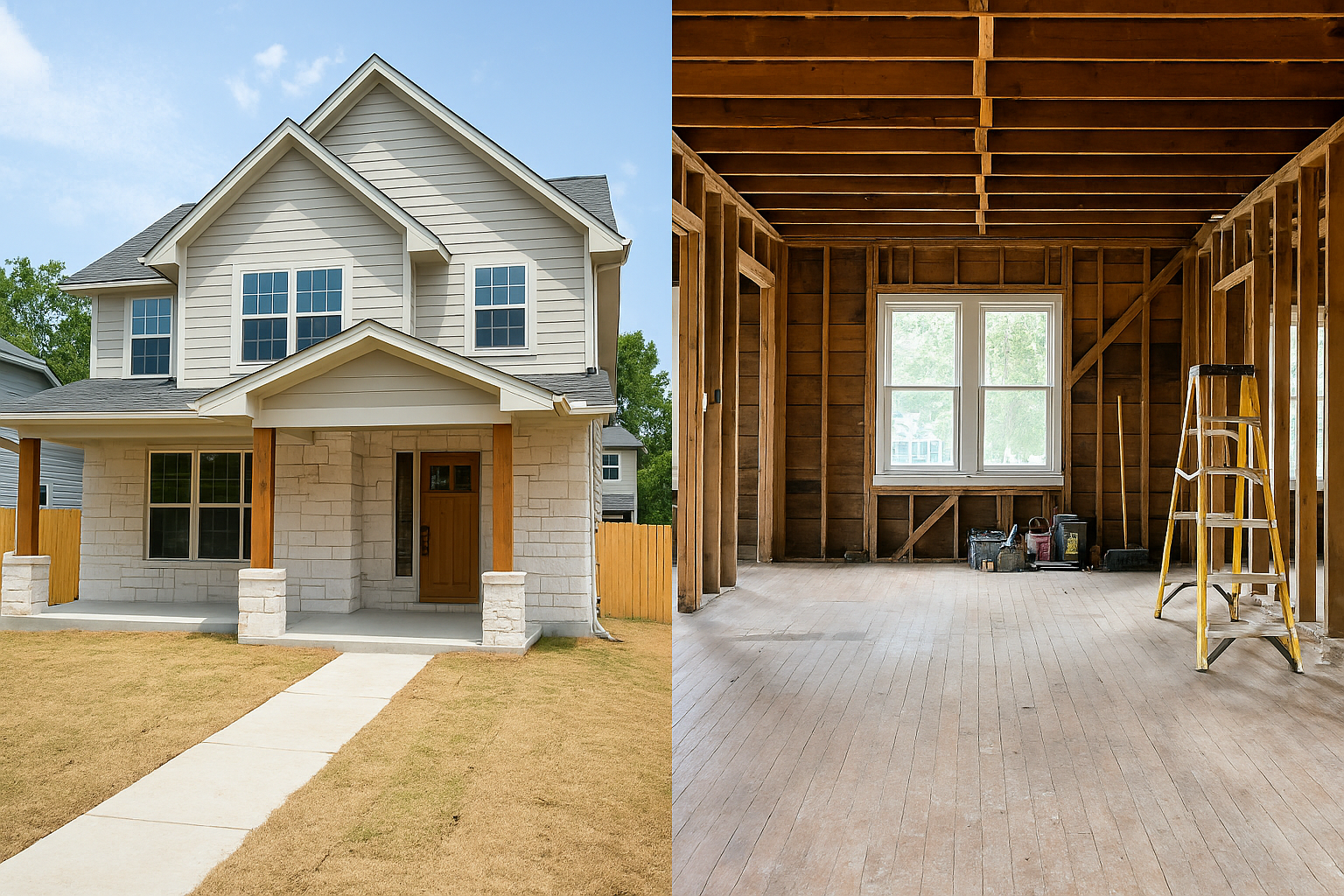Hiring the right general contractor is one of the most critical decisions you’ll make during a home renovation. The wrong choice can result in blown budgets, missed deadlines, subpar work—or worse. With so much at stake, homeowners must approach the hiring process with clarity, diligence, and the right expectations.
In this guide, we’ll walk you through the top mistakes homeowners make when hiring a general contractor—and more importantly, how to avoid them. Whether you’re planning a kitchen remodel, a full home renovation, or a room addition, these insights will help protect your investment and peace of mind.
Mistake #1: Not Verifying Licenses and Insurance
It may seem obvious, but many homeowners fail to verify whether their contractor is properly licensed and insured. A handshake or online profile is not enough. Without proper credentials, you risk working with someone who may cut corners, ignore building codes, or disappear mid-project. Verifying documentation early on gives you legal recourse if problems arise. It also reflects the contractor’s professionalism and commitment to doing things the right way.
Why It Matters:
- A valid license confirms the contractor meets state and local requirements.
- Insurance protects you from liability in case of accidents, property damage, or injuries.
What to Do:
- Ask for the contractor’s license number and verify it with your local licensing board.
- Request a certificate of insurance and ensure it covers liability and worker’s comp.
Mistake #2: Choosing Based on Price Alone
A low bid can be tempting, especially when renovating on a budget—but going with the cheapest contractor is often a costly mistake in the long run. Initial savings can quickly disappear when poor workmanship or delays arise. You may end up spending more to fix mistakes than if you’d chosen a reputable contractor from the start. A low price often reflects shortcuts in labor, inferior materials, or lack of project oversight.
The Risks:
- Low bids may cut corners on materials or labor.
- Important details may be missing from the scope of work.
- It can indicate lack of experience or financial instability.
Pro Tip: Look for a contractor who offers a detailed estimate, not just the lowest price.
Mistake #3: Not Getting a Written Contract
Verbal agreements leave too much room for miscommunication and conflict. A written contract protects both parties and ensures expectations are clearly defined. Without one, it’s nearly impossible to hold anyone accountable for delays, budget overruns, or incomplete work. A detailed agreement keeps the project on track and outlines responsibilities clearly. It also serves as a legal safeguard if disputes arise during or after the renovation.
A Good Contract Should Include:
- A detailed scope of work
- Payment schedule
- Start and completion dates
- Warranty information
- Change order process
Tip: Never start work without a signed contract in place.
Mistake #4: Failing to Check References and Reviews
Too many homeowners skip this step or only glance at a few online reviews. But thorough reference checks are essential. Speaking with past clients offers real-world insights into a contractor’s reliability, quality of work, and ability to meet deadlines. It also reveals how they handle issues and communicate during the project. Investing time in this step can save you from major headaches down the line.
What to Ask References:
- Was the project completed on time and within budget?
- How was communication during the process?
- Were there any unexpected issues—and how were they handled?
Bonus: Visit completed projects in person if possible.
Mistake #5: Ignoring Red Flags During Initial Consultations
The consultation stage is not just about getting quotes—it’s also your chance to assess professionalism, transparency, and communication style.
Watch Out For:
- Vague answers or reluctance to provide details
- Pressuring you to commit quickly
- Lack of punctuality or organization
Rule of Thumb: If something feels off during the interview, it’s a sign to look elsewhere.
Mistake #6: Not Reviewing the Contractor’s Portfolio
A contractor’s past work gives you valuable insight into their craftsmanship, style, and consistency. Don’t rely on a few social media posts—ask for a portfolio of completed renovations.
Look For:
- Quality of finishes
- Project scale similar to yours
- Design versatility or alignment with your aesthetic
Tip: A strong portfolio builds confidence in their ability to deliver your vision.
Mistake #7: Failing to Discuss Permits and Inspections
Renovations often require city permits and scheduled inspections. If your contractor doesn’t handle this properly, you could face fines or delays.
Key Points:
- Ask which permits your project requires.
- Confirm that the contractor will handle all permitting.
- Ensure inspections are built into the project timeline.
Warning: If a contractor suggests skipping permits, consider it a deal-breaker.
Mistake #8: Not Setting Clear Communication Expectations
Miscommunication can derail timelines and create unnecessary stress. Establish a clear communication protocol before work begins.
Things to Clarify:
- Who will be your main point of contact?
- How often will you receive updates?
- What’s the process for handling questions or concerns?
Tip: Weekly meetings or progress reports help keep everyone on the same page.
Mistake #9: Overlooking Change Order Procedures
Scope changes are common in renovations—but without a proper change order process, they can spiral into confusion and cost overruns.
Your Contract Should Include:
- A written change order form
- Agreement on additional costs and time impacts
- Approval required before extra work begins
Tip: Never agree to changes verbally or without seeing updated costs in writing.
Mistake #10: Hiring Without a Timeline or Schedule
Time is money—especially during home renovations. An experienced contractor should provide a clear project timeline with key milestones.
Timeline Should Include:
- Start and end dates
- Phase-by-phase breakdown (demo, framing, inspections, etc.)
- Buffer time for delays like weather or material shortages
Warning: If your contractor won’t commit to a timeline, find someone who will.
Bonus Tip: Always Trust Your Instincts
If something feels off—whether it’s pricing, communication, or behavior—listen to your gut. Renovations are stressful enough without second-guessing your contractor.
A Reliable Contractor Will:
- Be transparent and communicative
- Provide a clear and fair contract
- Show pride in their work and reputation
Final Thoughts
Hiring the right general contractor doesn’t just impact your renovation—it affects your time, budget, stress level, and long-term satisfaction with the project. By avoiding these common mistakes, you can choose a contractor who aligns with your goals, delivers excellent craftsmanship, and earns your trust.
At Sonoma Custom Renovations, we pride ourselves on transparency, clear communication, and delivering high-quality home transformations. Whether you’re planning a kitchen upgrade or a full home remodel, our licensed team is here to guide you through every step of the process.
Ready to talk about your renovation? Contact us today to schedule your consultation.




